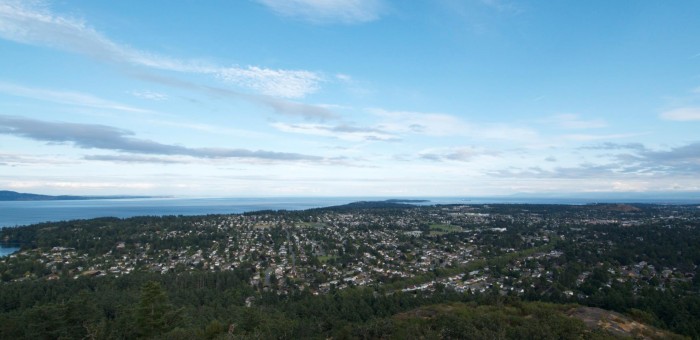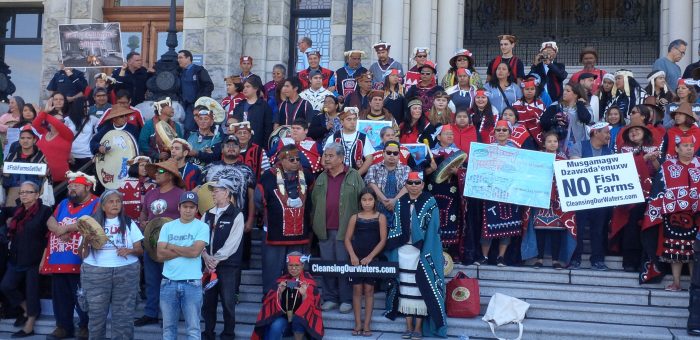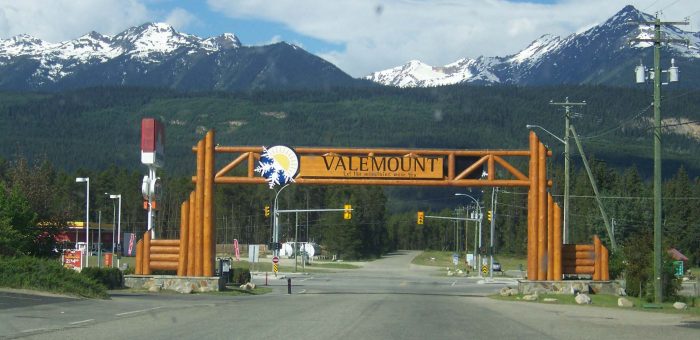Uncategorized
We need to improve stressful and unfair driver testing of seniors
Deciding who is allowed to drive and when a driver should have their license revoked is an incredibly important decision that weighs personal freedom against public safety. It’s a tough job tasked to the B.C. Office of the Superintendent of Motor Vehicles in the Ministry of Justice, who then enlists the assistance of driving programs and medical professionals to carry out assessments that inform their decisions. Some, like the written and driving tests many of us took at 16, introduce British Columbians to the driving world. Others, like the Driver’s Medical Examination Report and DriveABLE, are used to ensure current drivers are continuing to drive safely.
There are 96,000 drivers over the age of 80 in B.C., according to ICBC’s 2014 statistics. While keeping our streets safe is undoubtedly the priority, ensuring that mandatory tests are respectful, fair, and effective is also of utmost importance.
Under the current system, when a driver turns 80 they are required to see their doctor for a Driver’s Medical Examination Report (DMER) every two years. The examination covers a lot of ground from eyesight to cardiovascular health to assessing the severity, progression, and treatment of any medical conditions that could affect the driver’s ability to safely operate a vehicle.
This mandatory examination is not covered by provincial health care and usually costs seniors $197 every two years (the fee recommended by the British Columbia Medical Association), but the bill is left to the clinic’s discretion and has been known to range anywhere from $50 to $500. My office called two clinics in my riding; one in Oak Bay charges $105 and another in Gordon Head charges $125.
I agree with the concerns that the Office of the B.C. Seniors Advocate has raised in the past about the indiscriminate DMER pricing scheme. Given that this is a mandatory test for drivers over the age of 80, and that is must be repeated every two years, I believe the cost should be covered by provincial health care. Seniors who are getting their DMER assessments done regularly are doing their part to ensure our streets stay safe. I do not think that is something they should be financially penalized for.
If a person passes DMER with flying colours, as we always hope they will, they are free to enjoy another two years of safe driving. If the doctor notices a potential problem during the examination, however, it will be reported to RoadSafetyBC. As the agency that oversees driver licensing, RoadSafetyBC will look at the doctor’s report and determine if the patient is going to lose their license or go for additional testing. When the doctor’s concerns relate to cognitive issues that could interfere with driving abilities, the patient may be instructed to take the DriveABLE examination.
Only a small percentage of seniors who go through the DMER process are referred to DriveABLE. A private company based in Alberta developed the DriveABLE program. The company has had a contract with the B.C. government since 2005 and receives roughly $420 from the province every time someone is tested. The test is done on a computer and is 60 to 90 minutes long and can be daunting to seniors with limited computer or video game experience. If the computer assessment is failed, as it often is, drivers can then request an on-road evaluation to demonstrate their safe driving abilities.
So what is the purpose of the BC Government making seniors jump through the costly DriveABLE hoop when they can ultimately appeal a DriveABLE test failure and ask for an on-road evaluation. It makes no sense to me. It strikes me as for more sensible to just dump the DriveABLE screening and go straight to the on road test. The monies saved in this process could be used to eliminate the DMER cost to seniors
When the time comes to see your doctor for a DMER, Steve Wallace, the owner of Wallace Driving School on Vancouver Island and former vice-president of the Driving School Association of the Americas, recommends bringing a record of your driving history. You can get a copy of your driver’s abstract, the driving record for the past five years, free of charge at any ICBC testing facility.
If you have ideas about how the driving assessment process could be improved in B.C. please feel free to contact my constituency association office at (250) 472-8528 or my legislature office by phone at (250) 387-8347, email at Andrew.Weaver.MLA@leg.bc.ca, or mail at Andrew Weaver, Room 027C Parliament Buildings, Victoria BC, V8V 1X4.
Radon testing in Gordon Head
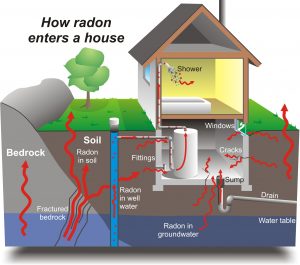 The Canadian Cancer Society has initiated a radon detection program on Vancouver Island. One of the three communities that has been selected is Gordon Head.
The Canadian Cancer Society has initiated a radon detection program on Vancouver Island. One of the three communities that has been selected is Gordon Head.
Radon, produced through the decay of uranium, is a naturally occurring gas whose presence is not detectable through smell, taste or sight. But this same gas is known to be the second leading cause of lung cancer behind smoking and it can build up in homes where naturally occurring radon is present. The good news is that if radon is detected, all homes can be fixed.
As noted by the Canadian Cancer Society in their information package:
Geological maps of uranium deposits demonstrate there is potential for elevated radon levels on Vancouver Island, although limited residential testing has been completed. The Canadian Cancer Society wants to identify radon levels to determine if there is a need for further testing, community education, action, or policy.
If you own a single detached home in the Gordon Head area and would like to participate for free in the Canadian Cancer Society’s research endeavour, please find instructions their information package.
Standing with the Musgamagw Dzawada’enuxw Nation on Open Net Salmon Farming
Today I had the distinct honour of standing with the Musgamagw Dzawada’enuxw Nation in demanding the removal of open net fish farms from their traditional territories. I went one step further in stating that a BC Green government would ensure that those holding permits for open net fish farming along the migratory route of wild sockeye salmon would be given 90 days notice that their permits would be revoked. In addition, and unlike both the BC NDP and the BC Liberals, the BC Greens will not accept corporate donations from those involved in the open-net Atlantic Salmon farming industry,.
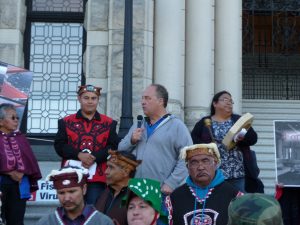 It’s not that the Musgamagw Dzawada’enuxw Nation and I are alone. In May 2015 I introduced a petition by 108,848 people who asked the government to please not issue licenses of occupation to salmon farms trying to expand in British Columbia. I also introduced a second petition signed by more than 100 business organizations across the province who supported the individuals who signed the larger petition. The business organizations argued that they are convinced by the published scientific evidence that open net salmon farms are a threat to B.C. wild pacific salmon.
It’s not that the Musgamagw Dzawada’enuxw Nation and I are alone. In May 2015 I introduced a petition by 108,848 people who asked the government to please not issue licenses of occupation to salmon farms trying to expand in British Columbia. I also introduced a second petition signed by more than 100 business organizations across the province who supported the individuals who signed the larger petition. The business organizations argued that they are convinced by the published scientific evidence that open net salmon farms are a threat to B.C. wild pacific salmon.
This doesn’t mean that we have to shut down salmon farming. Rather, it means that we have to start using closed containment systems that pose no threat to our wild salmon. In fact, we need look no further than the Namgis First Nation on Vancouver Island who have initiated a sustainable land-based salmon farming industry on their traditional lands.
Government Recalling Legislation to Pass Vacancy Tax Provisions in Vancouver Charter
Media Statement: July 11th, 2016
Weaver responds to Vacancy Tax
For Immediate Release
Victoria B.C. – Andrew Weaver, Leader of the B.C. Green Party and MLA for Oak Bay – Gordon Head, today responded to the provincial government’s announcement that the House will be reconvened in two weeks in order to pass new legislation concerning the overheated real estate market, including the legislation required for Vancouver to bring in a vacancy tax.
“This government is taking a hands off approach on the most pressing issue facing British Columbians. With this rushed session they are introducing new chaos into an unstable situation. What will the impacts be of one municipality in a connected region acting alone? My guess is that no one really knows.
“This piecemeal approach being taken risks making things worse. What is needed is provincial leadership that brings forward thoughtful solutions for all British Columbians – solutions that ensure that our young professionals and small business owners aren’t simply priced out of the real estate market.
“Earlier this year I pointed out to government that there are at least three dimensions to the issue of affordability and speculation in BC’s housing market:
- incentivized government speculation;
- a preponderance of vacant homes, and
- non-enforcement of illegal realtor transactions.
The government continues to ignore a speculative ‘bare trust’ tax loophole to remains open and allows for the avoidance of paying property transfer tax.
-30-
Media contact:
Mat Wright
Press Secretary – Andrew Weaver MLA
Cell: 250 216 3382
Mat.wright@leg.bc.ca
Twitter: @MatVic
Background Information:
Offering Practical Solutions to Vancouver’s Affordability Crisis
Affordability & Metro Vancouver’s Potential Housing Bubble
Let’s close a tax loophole so big you could drive a bus through it
An Exciting Opportunity for Tourism & Economic Development in Rural BC
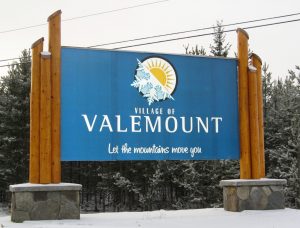 The community of Valemount is located on Southern Yellowhead Highway 5, twenty kilometres south of the intersection with Yellowhead Highway 16 that connects Prince George to Edmonton. With a population (including the surrounding area) of about 2000, Valemount, like so many other rural communities in BC, used to have a forestry-based economy. In the case of Valemount, it was the Slocan mill that was the engine of their local economy. But that mill shut down for good over a decade ago.
The community of Valemount is located on Southern Yellowhead Highway 5, twenty kilometres south of the intersection with Yellowhead Highway 16 that connects Prince George to Edmonton. With a population (including the surrounding area) of about 2000, Valemount, like so many other rural communities in BC, used to have a forestry-based economy. In the case of Valemount, it was the Slocan mill that was the engine of their local economy. But that mill shut down for good over a decade ago.
The people of Valemount and their elected Mayor and Council were resilient. Today Valemount has emerged as a tourism centre in northeastern British Columbia. And it’s about to get a whole lot more exciting.
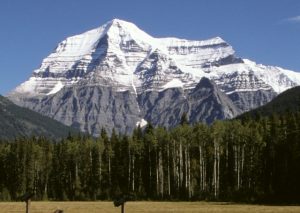 Valemount is a natural hub for ecotourism. It is a fully serviced community sitting next to Jasper National Park and Mount Robson Provincial Park. It’s also located near the head of Kinbasket Lake, created when BC Hydro’s Mica Dam was built on the Canoe River. Canoe river is the northernmost tributary within the Columbia River drainage basin. McLennan river, one of the easternmost tributaries of the Fraser River also flows along the northern edge of Valemount.
Valemount is a natural hub for ecotourism. It is a fully serviced community sitting next to Jasper National Park and Mount Robson Provincial Park. It’s also located near the head of Kinbasket Lake, created when BC Hydro’s Mica Dam was built on the Canoe River. Canoe river is the northernmost tributary within the Columbia River drainage basin. McLennan river, one of the easternmost tributaries of the Fraser River also flows along the northern edge of Valemount.
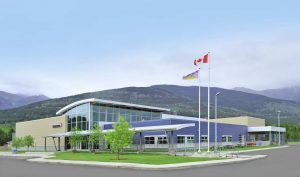 Whether it be skiing or snowshoeing in the winter or white water rafting, fishing, hiking or even golfing in the summer, Valemount has a diverse array of outdoor activities for the young and old. The town’s push to become an ecotourism hub even extends to the town’s high school, home to about 75 students. In 2012, the school became branded as a “mountain school”. The school developed curriculum and learning resources and activities involving outdoor and environmental themes in an attempt to arrest declining enrollment in the area.
Whether it be skiing or snowshoeing in the winter or white water rafting, fishing, hiking or even golfing in the summer, Valemount has a diverse array of outdoor activities for the young and old. The town’s push to become an ecotourism hub even extends to the town’s high school, home to about 75 students. In 2012, the school became branded as a “mountain school”. The school developed curriculum and learning resources and activities involving outdoor and environmental themes in an attempt to arrest declining enrollment in the area.
Over the last few months I became more and more intrigued about the proposed Valemount Glacier Destination year round ski and sightseeing resort.
On Friday last week, shortly before meeting to learn more from key executives in the Pheidias group, Valemount Glacier Destination’s project proponent, I also met with Gord Stewart, Senior Vice President, and Philip Hochstein, President, of the Independent Contractors and Businesses Association of BC (ICBA). As noted on their website:
“The Independent Contractors and Businesses Association of B.C. services and represents B.C.’s construction sector. ICBA’s 1,100 members build in the multi-family residential and Industrial, Commercial and Institutional (ICI) construction sectors and are involved in virtually all major capital projects in British Columbia.“
The purpose of my visit to the ICBA was to connect with Mr. Hochstein about his work with the ICBA and to learn more about the objectives and priorities of the ICBA and its member organizations. Our conversation centred around responsible resource development. The discussion was far reaching. I emphasized the need for bottom-up project development that starts with community involvement from day one, businesses internalizing externalities, and government clearly outlining and enforcing the regulatory environment and ensuring compliance with it. We both agreed that the construction industry recognizes that project development must be done responsibly. Mr. Hochstein’s challenge to me, a challenge that I accepted, was to define for him what “responsibly” means. I will be working on that in the weeks ahead.
This is an important challenge since in British Columbia, it seems like it is impossible for any resource project to move forward without meeting substantive resistance. In a forthcoming piece I will outline a number of key reasons why I perceive this to be the case as well as solutions as to how we might collectively move forward. The number one reason in my forthcoming post is this:
- Bottom up project development. Before a project can even get off the ground, local towns and First Nation communities must be treated as partners. After all, our natural resources are more often than not located in traditional First Nation territory and the back yards of our rural communities. Attempting to market a project to a community in a top-down fashion is bound to fail. On the other hand, if First Nations and local towns are supportive, they will become the strongest advocates for the projects.
So what has this got to do with Valemount Glacier Destination — absolutely everything. Some of you might have been following the controversy surrounding a proposed ski development at Jumbo Glacier. Not only was the nearby town of Invermere opposed to the project, but so were the Ktunaxa Nation who ended up in the Supreme Court. But in every failure is the birth of a new opportunity and that is what is playing out now in Valemount.
In a rare example of community-driven success, the genesis of the entire project was actually a phone call from a small citizen delegation authorized by the mayor and council of Valemount in 2011. The phone call was a simple request that Oberto Oberti, distinguished architect and president of the Pheidias Group, consider a proposal similar to what was proposed in the Jumbo Valley for the Valemount area. The Valemount delegation (which would go on to form the Valemount Ski Society), outlined how a project with good elevations (over 3000m), summer skiing on glaciers, as well as world-class year-round sight seeing could be achieved in the immediate area around Valemount, but better still, without the construction of significant new roads into remote valleys. In short, a world-class high alpine development could be achieved in the front country of the Robson Valley, in a busier highway, with a more exclusive existing market-base (Edmonton and Jasper) as opposed to the more competitive market base of Calgary, Banff and the Kootenays. A project in Valemount would also be located very close to, but not within the UNESCO World Heritage Sites of Mt. Robson Provincial, and Jasper National Parks. Oberto Oberti’s first action after receiving the phone call was to arrange a meeting with the Simpcw Nation. The resulting collaboration of local support has survived three changes in Mayor and Council at both the municipality of Valemount and the Simpcw First Nation and no organized opposition has yet to come forward against the project.
After some initial seed money to achieve a Master Development Agreement, a small group of Vancouver based investors who founded Valemount Glacier Destinations Ltd. was joined by Greg Marchant and Hunter Milborne of a larger Toronto investment community. As such, a very rare kind of project has emerged in which a small town joined forces with the local First Nation, solicited expertise from Vancouver, and will build Phase One entirely with no real estate pre-sales with Canadian investment. The undertones of Nation Building can not be denied in this aligning of forces. The Canadian investors are already lined up to make this project a reality and open for skiing by the time the 2017/18 ski season gets underway. But of course, that’s only if the BC government will give its final approval.
So what’s special about this project. I encourage you to see for yourself by browsing through the 325 page Master Plan. In particular, have a look at Appendix 3, Valemount Resort Environmental Impact Assessment put together by Vancouver-based Enkon Environmental Limited. I’ve seen a number of Environmental Assessments over the years and this one strikes me as a particularly fine example of what can be done.
The Pheidias Group have a vision for an environmentally sensitive year round ecotourism resort that will provide visitors to British Columbia with another destination rivaling that of Whister-Blackcomb. It will give visitors stunning views of Mount Robson, the highest mountain in the Canadian Rockies. The peak elevation of the site is on Mt. Arthur Meighen (3,205 metres). Compare this to the peak elevations at Whistler (2,240m), Blackcomb (2,440m), Sun Peaks (2,080m), Mount Washington (1,588m), and Big White (2,319). The high peak elevation is such that skiing on glaciers will likely be year round for quite some time to come. In addition, this elevation, coupled with a more northerly location bodes well for long term operations in light of ongoing global warming and the increased likelihood of more precipitation at lower elevations and latitudes in the form of rain instead of snow in the years ahead. What’s more, the resort has the potential to be carbon neutral by tapping into the nearby 5.7 MW Hystad Creek small scale hydro project. There’s also incredible geothermal energy potential in the region.
After meeting with the Pheidias Group, peppering them with questions, taking copious notes, and subsequently reading the Master Plan, it’s clear to me that this is an exciting project that I am keen to see move forward. So what’s the delay?
The irony is that for a government so proud of touting the “let’s get to yes” mantra and so chuffed with itself for proclaiming in law that the first Wednesday in March is “Red Tape Reduction Day“, the delay falls squarely in the realm of government red tape precluding the project from getting to yes.
The project is six months behind and the latest layer of red tape is a bizarre new requirement for a four lane 80 km/hr highway to take skiers on an 8km journey from Valemount to the Resort Base village.
Valemount Glacier Destination is an ecologically sensitive project that will provide an incredible economic stimulus to northeastern BC. In the words of Oberto Oberti, President of the Pheidias Group, “We want to work with nature, not against nature”.
If the BC government spent a fraction of the energy they are spending in a desperate attempt to land a hypothetical LNG facility on actually moving real projects forward, we would be leading North America in the development of a 21st century diversified economy.
The “forces of no” within the BC Liberal government really need to “get to yes” in a timely fashion on this project.


